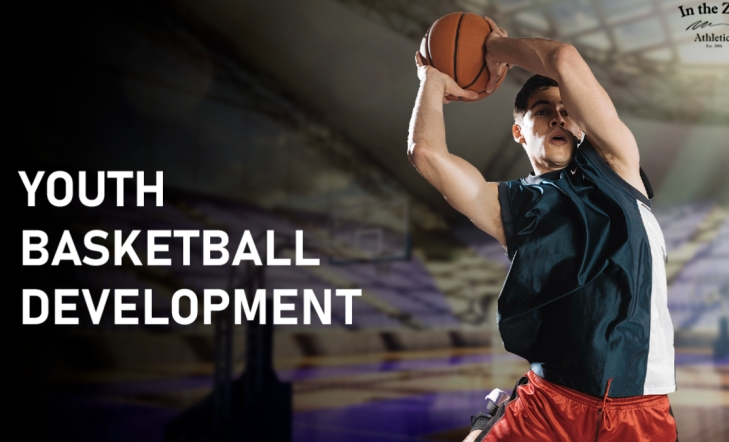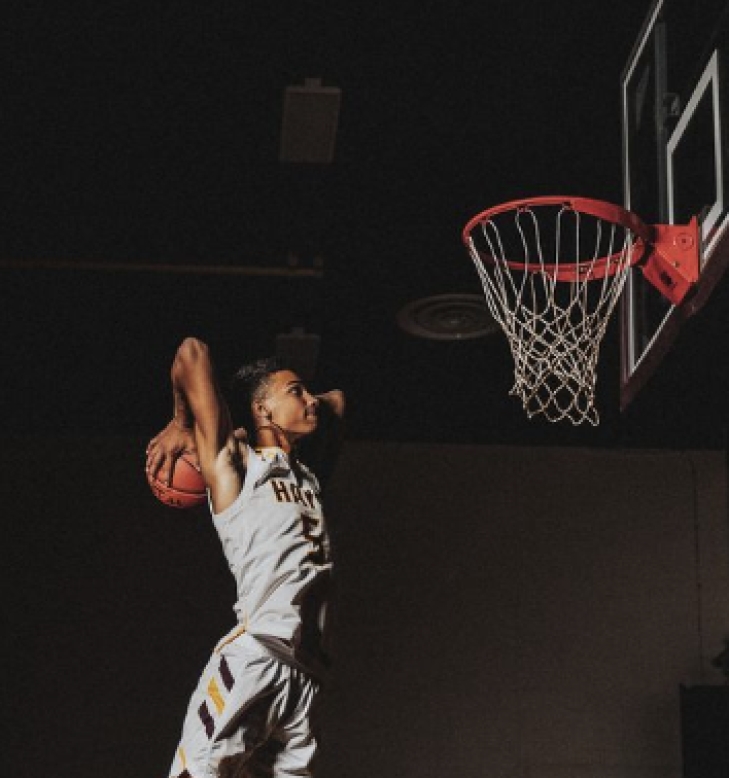How Young Basketball Players Become Legends of the Big Sport
What the trajectory of professional development looks like in youth basketball, the influence of infrastructure, training, and social environment on performance.
Youth Basketball Development: Training, Exposure, and Pathways to the Pros
Betting on youth basketball is becoming an increasingly popular area of betting. Niche teams are performing well, and many exclusive markets have increased odds that will appeal to anyone who wants to make money from their bets.
In this article, we with inthezonesports.biz take an in-depth look at key aspects of developing young basketball players: training methods, the importance of game practice and tournaments or international exchanges, and the actual journey from the school court to the professional arena.
Training Process
Let's look at the main directions in the training of young athletes.
Ball Handling and Basic Skills
The foundation of a successful basketball career is confident ball handling. As part of this task, athletes must master dribbling - the ability to dribble with both hands at different speeds, playing with changes in direction and speed, as well as passes and their variations - chest, one-handed, shoulder, and catching the ball under pressure. Throws also play a big role in the preparation - setting the hands, footwork, mastering throws from movement, standing, jumping, from corners and middle distances.
Without these basic skills, further development is impossible. Regular practice of technique in training builds automaticity, simplifies decision making and contributes to game efficiency.
Physical Fitness and Endurance
Basketball requires not only masterful ball handling, but also excellent physical fitness. The training programme for young athletes should include:
- Strength exercises for the legs, corset and shoulder girdle so that athletes can withstand physical pressure;
- Speed and strength training including sprints, jumping jacks, reaction exercises;
- Aerobic and anaerobic endurance - interval training, cross-country;
- Alternating loads as well as developing co-ordination and mobility - working in ladders, stability and balance exercises.
The variety of loads helps you avoid injury, develop a full body and stay competitive on the court.
Coaching and Individualisation
Effective training depends on a proper coaching approach that includes an assessment of each athlete's strengths and weaknesses, a balanced programme that takes into account technical, tactical and physical aspects, a gradual increase in difficulty as the level of training increases, attention to mental toughness, teamwork and leadership. A responsible coach will always help young athletes to develop potential qualities and overcome risk zones.
Participation in Competitions
The true potential of athletes in youth basketball is revealed only when they participate in competitions.
Local and Regional Tournaments
Getting to the highest level starts with regular participation in matches. Local championships, street tournaments and school competitions provide invaluable experience. Athletes learn to analyse game situations in real time, acquire the ability to adapt to the opponent's level, develop a deeper understanding of the rules of play, defence, rebounding and shot selection.
Open Camps and Screenings
Participation in specialised basketball camps is an opportunity to make a name for yourself and attract the attention of clubs and leagues. Most of these events are conducted with the participation of professional coaches, scouts and university programme coaches. At the camps, athletes receive professional feedback, the opportunity to get in front of managers and scouts, and to get involved in the talent point programme of the system.
International Tournaments and Exchanges
For the most ambitious young basketball players, participating in international tournaments brings great experience. Here you can compare yourself with participants from other countries, adapt to different styles of play, and get noticed by foreign coaches or colleges. This experience often becomes a turning point in the careers of many athletes.
Ambition and Development
Let's look at what their trajectory looks like according to different types of interventions.
Junior Careers and Professional Clubs
The youth programmes of professional teams provide key resources: coaching staff, recreational facilities, and regular opponents. Once in a youth academy, an athlete receives psychophysiological support, individual training plans, mentoring from experienced athletes, and a stable playing load.
College or University
Many professionals started out in college leagues in the United States. It is a full range of educational support, an opportunity to combine sport and study, a visible stage for NBA scouts and agencies. Even users who have not gone to the USA get experience, participation in the university system or exchange programmes for new knowledge and connections.
Contracts, Agents and the Transition to Adult Basketball
The appearance of an agent is important: he helps to negotiate contracts, transfers and sponsorship agreements. Before entering the professional world, the young man undergoes psychological and social training, learns financial literacy, and manages his public image.
Mental Development
It is equally important to keep an eye on your emotional state during gameplay.
Work on Psychological Resilience
Professional training includes stress training, concentration development and emotion control techniques. It is important for young men to be able to manage anxiety, maintain composure, and recover from setbacks.
Goals, Motivation and Responsibility
Only a clear vision and planning help a young man to stay on track. Short and long-term goals are important (current training, year, 3-5 years), work on self-control and discipline and a balanced life: basketball, studies, holidays, family.
Role of Environment and Support
The training process will not be effective unless the appropriate context is created for it.
Infrastructure, Accessibility and Resources
Infrastructure support - gyms, courts, medical services, camps - is critical for sustained skill growth. Equipment availability depends on investment in co-operation with clubs and federations.
Education and Career Planning
Mixing the game itself with studies gives the athlete an alternative path academic scholarships, exchange programmes, parallel careers (coach, sports analyst), psychological and management support.
Obstacles and Difficult Moments
In training, athletes also face limitations that can affect their performance.
Injuries and Recovery
Sports are associated with risks. These are often: sprains, bruises, joint injuries. The work of a rehabilitator and a medical approach help to avoid long pauses.
Burnout and Low Motivation
Sometimes too much stress can lead to apathy. It is therefore important to plan rest, diversify leisure time with different types of activity (swimming, yoga, chess) and pause for psychological recovery.
Unfavourable Environment
Many young athletes face social pressure, financial instability and lack of support. Therefore, support from federations, access to grants and scholarships, psychological and social support are extremely important to them.
Youth basketball is not just preparation for professional contracts. It is personality formation: self-discipline, team spirit, leadership mindset.
The Role of Elite Training in Advancing Youth Basketball Skills
Celebrated worldwide for its explosive speed, strategic depth, and athletic demands, basketball enthralls young brains and motivates aspirations of on-court brilliance. Aspiring young players typically find their path from casual interest to competitive expertise paved with dedication, relentless effort, and increasing access to top training programs.
These specific paths of growth provide a concentrated environment meant to improve abilities, create tactical intelligence, and teach the physical and mental toughness needed for high-level play, transcending the reach of normal recreational leagues or school teams. This article will explore the several ways in which top training programs help to improve young basketball skills, therefore opening the path for future success on and off the court.
Mastery of Foundational Skills: Specialism
Unlike more comprehensive coaching, elite basketball training camp offer a great and exact concentration on the specialization and mastery of basic basketball abilities. Though fundamental dribbling, passing, and shooting are taught everywhere, top training separates them down into their most minute elements.
For every movement, coaches stress good footwork; for shooting mechanics, correct hand placement; for passes, exact angles; and for defense, effective body alignment. Often with instantaneous, high-level feedback, repetition of these refined techniques teaches players to perform movements with the best form and efficiency.
Advanced game situational awareness and tactical understanding
A hallmark of top training is its focus on sharp game situational awareness and improved tactical understanding development for a young player. Beyond personal ability, basketball is an anticipatory, strategic, decision-making game.
Elite programs educate players on how to analyze defenses, run pick-and-rolls, grasp space, and make smart decisions both with and without the ball. They also explore offensive and defensive systems.
Through advanced drills that replicate game situations with specified objectives, players can acquire fast information processing and effective under-pressure skills. They are trained to spot trends, predict opponent moves, and see how each of their actions affects the team's whole plan.
Interaction with Diverse Playing Styles and High-Level Competition
Young players often benefit greatly from elitebasketball training camp in terms of exposure to high-level competition and different playing techniques. This usually involves competing in inter-academy events, scrimmages against other top teams, or even fierce tournaments.
Playing against a larger spectrum of competent opponent’s challenges players to change their game, spot flaws, and learn to counter several approaches. This exposure increases their knowledge of the game and speeds their progress significantly more quickly than regularly playing against the same, less demanding opponent. It also gives a reasonable benchmark of their present skills and encourages students to keep developing at either college or professional level.
Entry to Advanced Facilities and Specialized Coaching
The access elite training offers to specialist coaching and modern facilities are among the most defining features of it. Unlike ordinary coaches, top basketball coaches frequently have advanced credentials, great knowledge of modern basketball pedagogy, and a great degree of experience playing at elite levels.
Moreover, top programs usually run in purpose-built facilities furnished with advanced technologies such as shooting machines with analytics, modern training tools, and specialized strength and conditioning spaces.
By combining professional advice with the best tools, one can maximize the potential of a young athlete by building an atmosphere fit for fast skill acquisition and thorough player development.
Personalized Comments and Performance Monitoring
The degree of personalizing elite training provides is among its strongest benefits.
Young athletes get thorough comments catered to their strengths and areas for development through video analysis, player tracking systems, and frequent evaluations. This data-driven method guarantees players are practicing intelligently and hard.
In conventional educational or recreational programs, this degree of observation is challenging.
Elite basketball training not only improves technical and tactical skills but also promotes personal development and a professional attitude. Whether one wants to play professionally, get a college scholarship, or maximize their ability, top training offers a clear and effective pathway.



